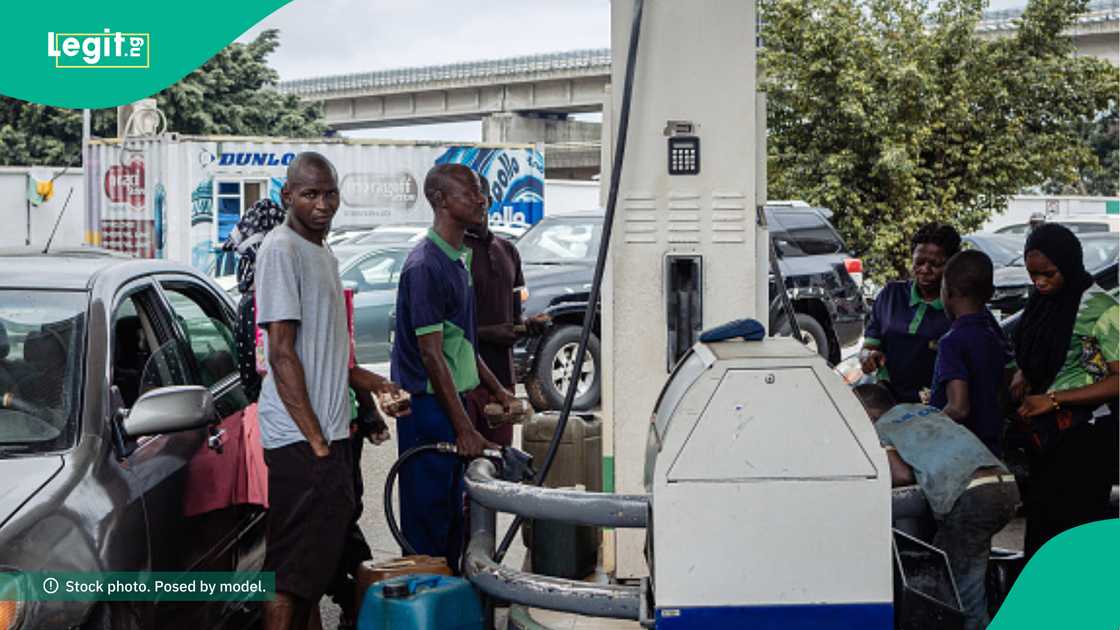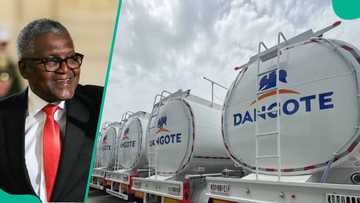411 Nigerians died in 2024 while scooping fuel from tankers - FG
- Hundreds of Nigerians have died in 2024 while attempting to scoop fuel from fallen tankers, according to the Federal Road Safety Corps
- The Benue Sector Command revealed that fuel scooping accounted for 7.6% of all road traffic fatalities this year, turning preventable accidents into deadly infernos
- Authorities are now calling for urgent behavioural change and stricter safety measures to curb the rising toll
The Federal Road Safety Corps (FRSC), Benue Sector Command, has revealed that 411 Nigerians lost their lives in 2024 while attempting to scoop fuel from fallen tankers.
Sector Commander Mr Steve Ayodele made the disclosure during a town hall meeting held in Makurdi on Tuesday, aimed at promoting crash prevention among trailer and tanker drivers.

Source: Getty Images
Ayodele stated that the fatalities accounted for 7.6% of all road traffic deaths recorded in Nigeria in 2024, describing the figure as “beyond tragic.”
He warned that fuel scooping had become one of the deadliest practices on Nigerian roads, turning avoidable accidents into catastrophic events.
Town hall meeting urges end to fuel scooping and reckless driving
The meeting, themed “Discourage Fuel Scooping and Other Anti-Road Traffic Attitudes,” brought together drivers, community leaders, and government agencies to address the growing dangers associated with tanker and trailer crashes.
Ayodele noted that tanker explosions frequently result in life-threatening burns, destruction of property, and long-term economic hardship for victims’ families. He condemned behaviours such as reckless driving, disobedience to traffic rules, and roadside trading near accident-prone areas, saying they exacerbate the impact of road crashes.
“Instead of recognising spilt fuel as a hazard, many Nigerians rush to collect it,” Ayodele said. “We have witnessed tragic incidents where lives were lost due to fires caused by this reckless act.”
He further identified unregulated driving hours, overloaded tankers, and inadequate safety inspections as major contributors to road accidents, urging stakeholders to commit to behavioural change and life-saving practices.
Environmental and health hazards of fuel scooping highlighted

Read also
Family narrowly escapes boarding the Kaduna-Abuja train that derailed, overturned passenger's cabins
Mr Babalola Sheba, Head of Operations at the Nigerian Midstream and Downstream Petroleum Regulatory Authority, also addressed the gathering, warning of the environmental and health risks linked to fuel scooping. He explained that fuel spills contaminate soil, water, and air, posing threats to agriculture, aquatic life, and public health.
Sheba said inhaling fuel fumes could lead to respiratory issues and skin irritation. In response, the agency had mandated the installation of anti-spill safety valves and speed limiters on all petroleum product tanker trucks. He also introduced a colour-coding system for fuel trucks to enhance safety and identification:
Vehicle inspection service calls for road safety culture
Mr Emmanuel Ogbanje, State Coordinator of the Computerised Vehicle Inspection Service in Benue, stressed the importance of regular vehicle inspections and compliance with axle load regulations. He urged drivers to carry valid licences, avoid overloading, and report unsafe practices.
“Safety is not a goal but a continuous process,” Ogbanje said, calling for increased public education and collaboration among stakeholders to foster a culture of road safety across Benue State and beyond.
The town hall meeting concluded with a unified call to action: to end fuel scooping, enforce traffic laws, and prioritise safety on Nigerian roads.
Source: Legit.ng




